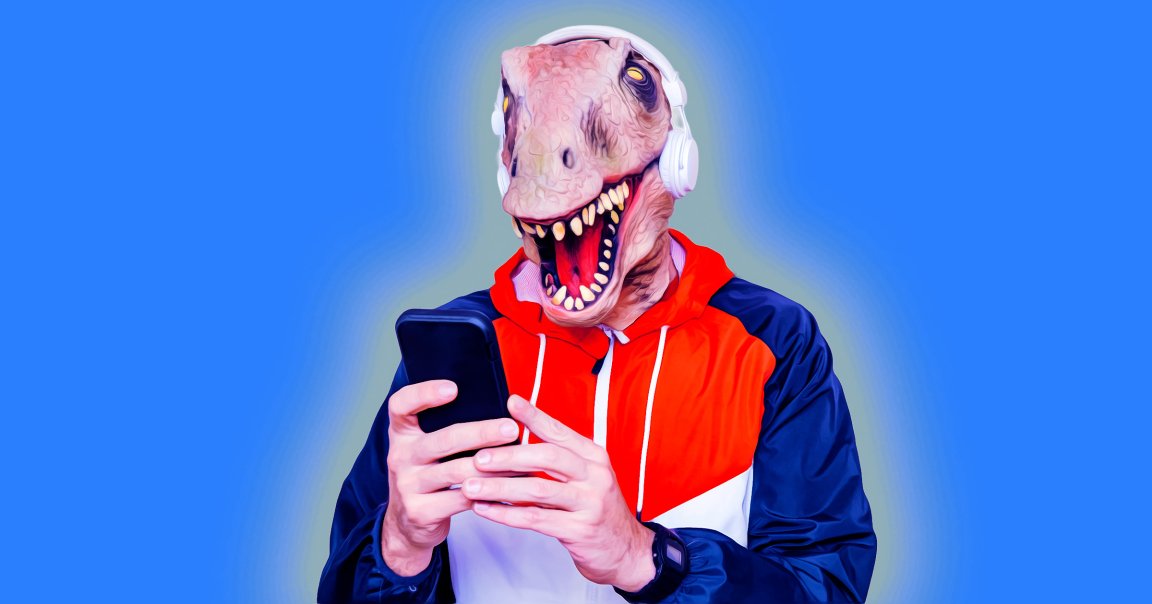
In the nearly 13 years since Tinder launched, the dating app has been everything from a straight alternative to Grindr to a sexual harassment factory to a venue to meet one’s spouse — and, most recently, an AI-riddled graveyard.
Nevertheless, there are still flesh-and-blood humans successfully using the app. And according to a fascinating new study about the folks who successfully hooking up on it, they share some bizarre traits in common.
In a new paper published in the journal Cyberpsychology, Behavior, and Social Networking, psychology researchers found that men who reported having a lot of sex with people they met on Tinder tended show signs of, in a word, psychopathy — and their female counterparts, unfortunately, just seemed to have lower standards.
Using a sample of nearly 500 German-speaking adults from the wide age range of 16 to 70 years old, personality psychologists Lennart Freyth of Johannes Kepler University and Peter K. Jonason the University of Cardinal Stefan Wyszyński gave their subjects — all recruited online and given a small monetary incentive — a battery of questions assessing their personality traits, experiences with Tinder and similar dating apps, as well as their sexual and romantic decision-making processes.
As with other studies relating to sociosexual psychology, the study’s participants were assessed for “Dark Triad” personality traits, which include narcissism (defined by Psychology Today as an overblown sense of self-importance), Machiavellianism (cunningness and manipulation, per the Journal of Psychology), and the often-misunderstood condition of psychopathy, which the American Psychological Association characterizes as involving “low empathy and remorse… impulsivity, and sometimes aggressive or violent behavior.”
Additionally, the survey respondents were asked questions their feelings and experiences surrounding sex and dating, including their relationships to casual sex, the open expression of sexual desire, and their past sexual experiences. They were also asked about how satisfied they felt with their potential matches on dating apps, and how often they look around for new ones.
Finally, the participants were asked whether they had ever been on date with someone from Tinder or a similar app, and whether they had had sex with someone from said apps.
As the psychology experts found, roughly 31 percent of the participants, male and female alike, said they had gone on a Tinder date. Of the participants who reported having had sex with someone from a dating app — the percentage of which was not, unfortunately, listed — men were way more likely than women to do so, with 66 percent of that cohort being male.
Cross-referencing with the Dark Triad assessments, the researchers concluded that the men who had sex with people from the apps were more likely to score higher in unrestricted or openly-discussed sexual desire — no surprises there — but also, troublingly, in psychopathy. The same couldn’t be said of men who didn’t report having slept with app matches, nor of any women in the study.
The women who said they’d had Tinder sex, meanwhile, reported much higher satisfaction with their decisions than the women who did not. The personality psychologists didn’t determine exactly why those women felt so gratified by their app exploits, but they suggested that those women may have been more willing to accept flaws or mismatches in person, or that they felt an increased sense of sexual agency in doing so.
Speaking to PsyPost about the study, Freyth drove home his surprise at learning that the women in his survey seemed to be “lowering their standards once on a date.”
“We consider this something like a sunk cost effect — after already texting, once on a date, the decision to engage further was already made,” he said.
(Interestingly, it appears that Freyth and Jonason were also not surprised to find that men who hook up on dating apps tend to be more psychopathic.)
The paper’s authors acknowledge that their study has its limitations, including that its self-reported responses could be skewed due to shame or self-aggrandizing. Still, Freyth boasted that the survey’s age range made it more comprehensive than others which have focused only on younger people.
“Compared to most studies on dating apps,” he told PsyPost, “our sample was relatively old (the average age was around 40 years).”
There’s also the geographical component: how different would a study looking into the dating app experiences of 16-to-70-year-olds be if it were conducted in East Asia, or Latin America, or the United States? For now, we can only speculate — but we’d bet that there would be some fascinating takeaways for each.
More on sex: Scientists Identify Ideal Amount of Boinking for Maximum Mental Health